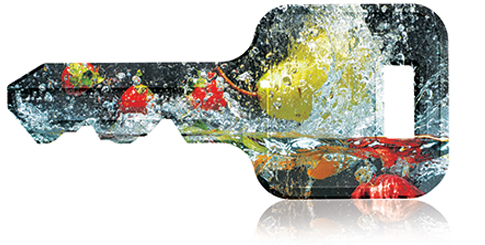The Food Safety Modernization Act (FSMA) of 2011 brought sweeping reform to the food industry, affecting not only domestic but international suppliers. Three years ago, the U.S. Department of Agriculture (USDA) estimated nearly a fifth of the nation’s food supply was imported, including over half of all fresh fruit and almost a quarter of fresh vegetables. As food imports continue to rise, so do concerns about safety and the prevention of foodborne illnesses.
For this reason, FSMA requires food suppliers to be proactive in preventing illness by mandating the implementation of specific steps, including the Hazard Analysis and Risk-Based Preventive Controls (HARPC) program. November 2015 brought further final rules tied to the Foreign Supplier Verification Programs (FSVP), Produce Safety, and Third-Party Accreditation delineations. This article covers FSVP and its ramifications for importers.
Importers: The Ball Is In Your Court
The FSVP puts the onus on importers to ensure food brought into the United States is safe; the program also holds them accountable if safety issues do arise. The rule applies to any U.S. owner or consignee of food being offered for import, as well as any foreign owner’s U.S. agent, representative, or consignee at the time of entry.
Importers must establish written FSVP paperwork for every product and foreign supplier to ensure they meet the safety level required of U.S. farms and food facilities as mandated by the Standards for Produce Safety or HARPC. Companies generally must comply by May 28, 2017, but very small businesses have additional time, until July 27, 2020.
“Historically, many importers have facilitated business transactions between overseas suppliers and U.S.-based customers—they haven’t always been this involved in food safety—at least probably not the way FSVP says they need to be,” explains Jennifer McEntire, Ph.D., vice president of Food Safety and Technology for the United Fresh Produce Association.
While the new requirements will affect suppliers on both sides of the border, they may be particularly difficult for brokers. “They’re the ones who will have to get up to speed,” comments Ken Gilliland, director of International Trade and Transportation at Western Growers Association. Grower-shippers who already import produce counter-seasonally are familiar with good agricultural practices, he noted.
FSVP Requirements
Components of the program include analyzing risk, evaluating each foreign supplier’s safety performance, verifying supplier activities, taking corrective action when appropriate, and proper recordkeeping. In addition, FSVP effectiveness must be reassessed every three years, or if new information emerges about a risk for a particular product or supplier.
Hazard analysis
A hazard analysis is required for each food imported. The analysis—based on experience, illness data, scientific reports, and other information—must cover the biological, chemical, and physical hazards known or reasonably likely to cause illness or injury if no controls are in place (regardless of whether naturally occurring or intentionally or unintentionally introduced).



